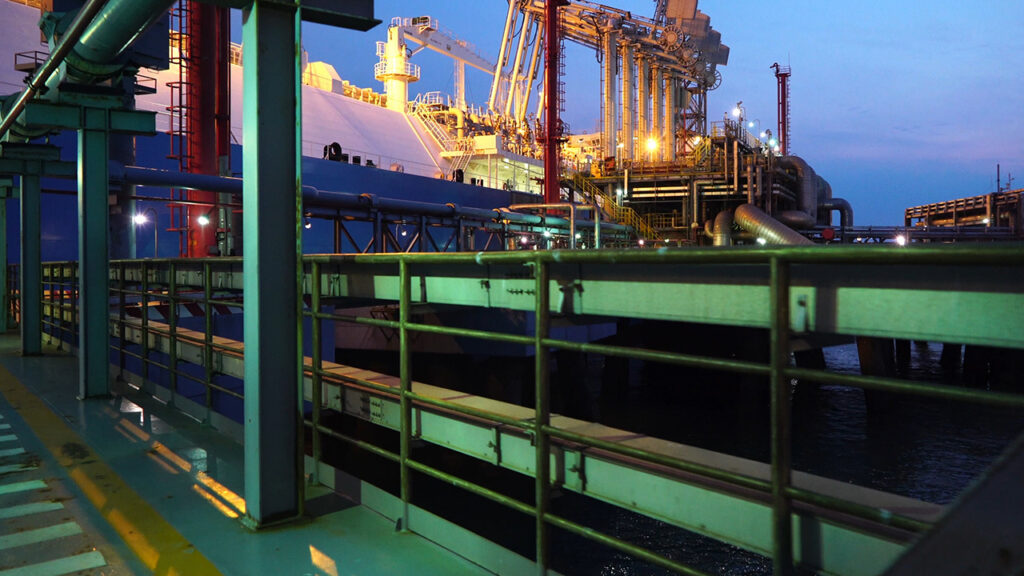Floating Storage: Time and voyage charter drafting tips
In the table below we have tried to “issue spot” the key problems arising from floating storage (for time and voyage charters) and have included our own explanatory comments as well as the positions owners and charterers may tend to adopt.
This table should be read in conjunction with HFW’s floating storage article which can be found here.
Rory Butler and William Gidman are available for specific guidance.
|
Issue |
HFW Comment on Issue |
Owners’ Position |
Charterers’ Position |
|
Right to use Vessel for Floating Storage |
Include an express contractual right to do this subject also to cargo owners’ consent/any bill of lading (B/L) issues which must also be considered. |
Indemnity for any claims faced by cargo owners under the B/L and charterers to procure cargo owners’ consent. |
Will want to see an express right to use the vessel as floating storage in the charter. |
|
Extension of the Charter |
If the charter is a time charter (T/C) is an extension to the charter period needed? |
Can rates be increased if the charter is extended? |
Charterers will want optionality. |
|
Period of Floating Storage |
Minimum/maximum periods are recommended, potentially with options on top. |
Try and include minimum and maximum periods. |
Try and avoid this to have maximum flexibility or have additional periods in Charterers’ option. |
|
Rate for Floating Storage |
Use hire or demurrage rate, or link to market indices or alternative formula? |
Push for higher rates than hire/demurrage rates if market is higher. |
Push for hire/demurrage rate or market rate if below this and consider asking if any savings owners will make from storage can be passed to charterers (e.g. any reduction in lube oil use, insurances, crew, etc.). |
|
Timing of Payment |
Hire is normally paid at regular intervals under a T/C so this is not an issue. However, under a voyage charter (V/C) the sum due for storage needs to be paid at specific intervals. |
Push for regular payments under a V/C, say every 7 days. |
Push for monthly payment or longer. |
|
Payment/Price Bunkers |
T/C – specify cost of bunkers, to be paid and supplied by charterers. V/C – need to specify bunkers to be supplied by owners but reimbursed by charterers unless all-inclusive rate charged. |
V/C – push for reimbursement of price paid by owners or market rate, whichever is higher in practice. |
V/C – push for lowest price. |
|
Storage More Than Once? |
Can the storage option be used more than once? |
Try and restrict to single use of option or require owners’ consent for any use beyond once. |
Charterers will want optionality. |
|
STS Operations |
Is loading and unloading of the vessel permitted from storage location? |
Owners will want to restrict rights and include indemnities/shift risks onto charterers if they agree to this. |
Negotiate to have maximum flexibility with minimum risks. Require owners to have some risks/obligations re STS. |
|
Notice Periods |
Include notice requirements from charterers to owners for exercise of storage options and redelivery thereafter. |
Require notice as far in advance as possible. |
Limited notice period or no notice required, ideally. |
|
Storage Location Agreement |
Can this be agreed as part of the contract in advance? If not it is suggested there should be a period for the charterers to propose a location and parties to agree, failing which the master has the final say. |
Try and agree in advance, however important that master has right of refusal. |
Best to pre-agree storage location or range of locations in charterers’ option to avoid disputes and giving owners leverage. |
|
Storage Location Risks |
Safe Berth/Safe Anchorage / Safe Place? |
Ideally charterers’ risk. Require master to have full discretion to leave/adjust location. |
Try and avoid risk or caveat such obligations to a due diligence standard only to reduce Charterers’ risk. |
|
Indemnity Damage to Vessel |
e.g. damage to vessel, tank coating, pumps, equipment, lines, chains, anchors, main engines caused by prolonged storage, etc. |
Seek a full indemnity from charterers. |
Try and avoid this entirely or insert a caveat that such indemnity for damage cannot arise from owners’ own failures. |
|
Port /Agency costs |
Normally for charterers under T/C and V/C where there is a floating storage. |
Charterers’ cost. |
Try and negotiate an all-in rate that is inclusive of costs or carve out that any costs relating to owners’ matters are for their account. |
|
Right to Shift (for safety, maintenance, bunkering, supplies, etc.) |
Owners will want to include a wide ranging right to shift/move location. |
Complete unfettered right ideally required for owners. |
Difficult to resist owners’ position but should verify bunker and supply/fresh water status before agreeing storage terms. |
|
Extra Costs for Freshwater and Supplies |
Such costs can be extra/ arise from floating storage. E.g. cost of launches, barges or shifting the vessel. |
Charterers’ cost. |
Try and avoid or reduce responsibility for such costs and require owners to “stock up” in advance and minimise consumption. |
|
Extra Security Costs |
Watchmen, Guards, etc., although ideally any storage location would not be dangerous enough to require these! |
Charterers’ cost. |
Try and avoid such costs or negotiate a reasonableness requirement and/or cap. |
|
Extra Insurance Costs |
e.g. extra P&I cover, War Risks, K&R, etc. |
Charterers to reimburse. |
Seek to limit to reasonable extra costs only and ask for a waiver of subrogation rights from the insurers. |
|
Extra Heating Costs or Specific Cargo Care Instructions |
Specify in contract along with cost/responsibility for the same. |
Cost and risk for charterers’ account. |
May need to accept cost but try and ensure owners have obligation to exercise due diligence at least/ take some risk. |
|
Cargo Claims and Cargo ROB |
Owners are responsible for cargo care under the charter and any B/L. Cargo may deteriorate due to floating storage. Cargo may deteriorate due to prolonged storage and/or cargo ROB may be higher than usual. |
Indemnity for cargo claims and ROB from charterers. Owners should also get P&I approval for floating storage. |
Push back or limit indemnity/charterers are not responsible where claim arises from owners’ default. |
|
Tank Cleaning and Sludge Removal Costs |
Extra tank cleaning may be needed after floating storage. |
Cost and time for charterers’ account. |
Try and avoid or limit only to extra cleaning needed or include a cap. |
|
Hull and Propeller Cleaning Costs and Time |
Hull fouling – two separate elements: cost of operation and time taken. |
All costs/time for Charterers’ account. |
Try and avoid such costs or propose a split. Failing which ensure costs must be reasonable and fully vouched and try and negotiate a cap on costs and time. |
|
Performance Warranties |
May be affected by hull fouling. |
Suspend all warranties until hull cleaning carried out. |
Try and ensure warranties only suspended where floating storage exceeds a certain minimum period. |
|
Right to Sail to Reduce Hull Fouling |
If the vessel sails for a certain number of hours every period this can help reduce hull fouling. |
Build in a right to do this with time and bunker used for charterers’ account. |
Try and restrict such rights if only short term storage planned and consider how long the steaming period really needs to be. |
|
Dry Docking |
Any scheduled maintenance or dry docking needs to be considered and extensions sought if required. |
Ensure this does not interfere with planned storage duration. |
|
|
Port Calls for Maintenance or Repairs or Crew Change or Illness |
With long term storage this is likely to occur as an issue and extra launch costs are likely plus it may be necessary to move the vessel itself. |
Time/bunkers used for charterers’ account. Seek complete flexibility for owners to decide port calls, perhaps with notice. |
Time and bunkers not to count when port call or launch is for owners’ purposes. Charterers’ consent needed for crew change? (Compromise may be needed unless necessitated by matters which are charterers’ responsibility under charter?) |
|
Oil Major Vetting/SIRE |
Charters normally require SIRE reports to have a maximum 6 months’ validity. |
Provide all vetting requirements/clauses suspended until floating storage concluded and a new inspection possible. |
Try and limit so any suspension of vetting only applies where owners cannot comply as opposed to a blanket exception. |
|
Tax |
Tax risks associated with storage in territorial waters. |
Tax risks for charterers’ account. |
Difficult to oppose owners’ position. |
|
Freight to Date Existing V/C Only |
Under an existing V/C freight may not be payable in full until B/Ls are issued or until the cargo is discharged at the discharge port. |
Provide for payment of full or at least pro rata freight as at the time storage starts. |
Delay payment or pay only pro rata rather than full freight. |
|
Voyage to Storage Location Existing V/C Only |
The vessel may need to divert from her present location to the agreed storage location. It is suggested that either additional freight is paid with a formula set for calculation in the contract or the time is compensated at the demurrage or some other agreed rate. |
Agree clear terms for this in advance. |
Agree clear terms for this in advance. |
Download a PDF version of ‘Floating Storage: Time and voyage charter drafting tips’












